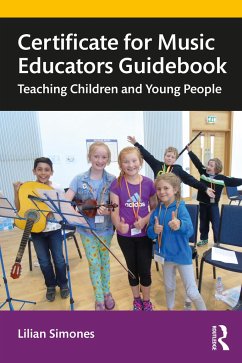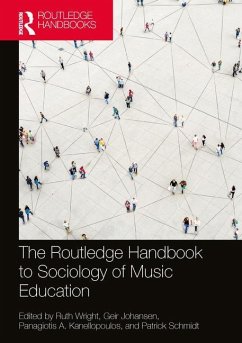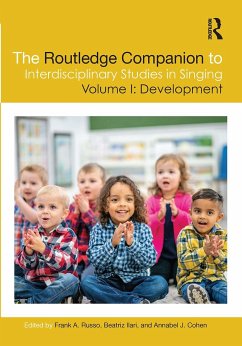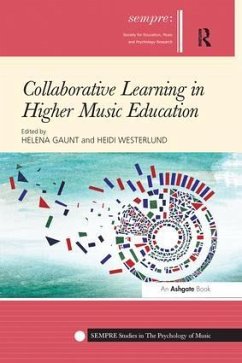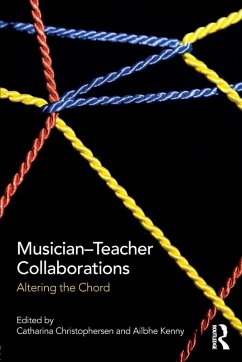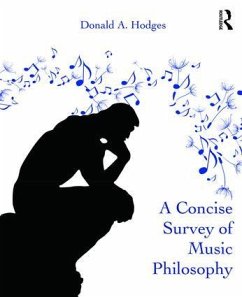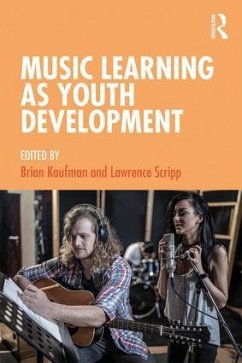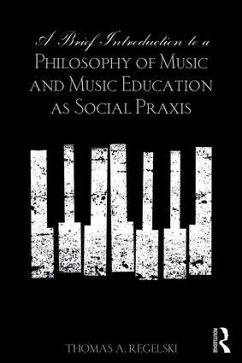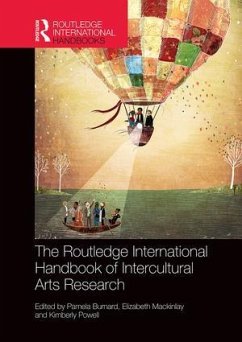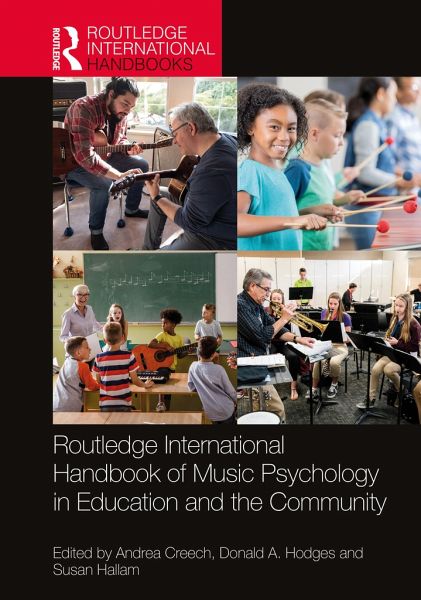
Routledge International Handbook of Music Psychology in Education and the Community
Versandkostenfrei!
Versandfertig in 6-10 Tagen
48,99 €
inkl. MwSt.
Weitere Ausgaben:

PAYBACK Punkte
24 °P sammeln!
This handbook provides an evidence-based account of psychological perspectives on issues in music education and music in the community through the life course, exploring our understanding of music learning and participation across contexts.The contributors draw on multidisciplinary research from different cultures and contexts in order to set out the implications of music psychology for music education and music in the community. Highlighting the intersecting issues across education and community contexts, the book proposes new theories as well as offering important refinements to existing con...
This handbook provides an evidence-based account of psychological perspectives on issues in music education and music in the community through the life course, exploring our understanding of music learning and participation across contexts.
The contributors draw on multidisciplinary research from different cultures and contexts in order to set out the implications of music psychology for music education and music in the community. Highlighting the intersecting issues across education and community contexts, the book proposes new theories as well as offering important refinements to existing conceptual models. Split into six parts, it considers the role of music in society as well as for groups and individuals, and explores topics such as processing and responding to music; pedagogical and musical practices that support or pose challenges to the emotional, cognitive, social or physical wellbeing of learners and participants in a range of contexts; and 'music in identity' or 'identity in music'. With the final part on future directions and the implications for professional practice in music education and music in the community, the book concludes by exploring how the two sectors might work more closely together within a post-COVID-19 world.
Based on cutting-edge research from an international team, this is essential reading for anyone interested in music psychology, education and community, and it will be particularly helpful for undergraduate and graduate students in music psychology, music education and community music.
The contributors draw on multidisciplinary research from different cultures and contexts in order to set out the implications of music psychology for music education and music in the community. Highlighting the intersecting issues across education and community contexts, the book proposes new theories as well as offering important refinements to existing conceptual models. Split into six parts, it considers the role of music in society as well as for groups and individuals, and explores topics such as processing and responding to music; pedagogical and musical practices that support or pose challenges to the emotional, cognitive, social or physical wellbeing of learners and participants in a range of contexts; and 'music in identity' or 'identity in music'. With the final part on future directions and the implications for professional practice in music education and music in the community, the book concludes by exploring how the two sectors might work more closely together within a post-COVID-19 world.
Based on cutting-edge research from an international team, this is essential reading for anyone interested in music psychology, education and community, and it will be particularly helpful for undergraduate and graduate students in music psychology, music education and community music.





